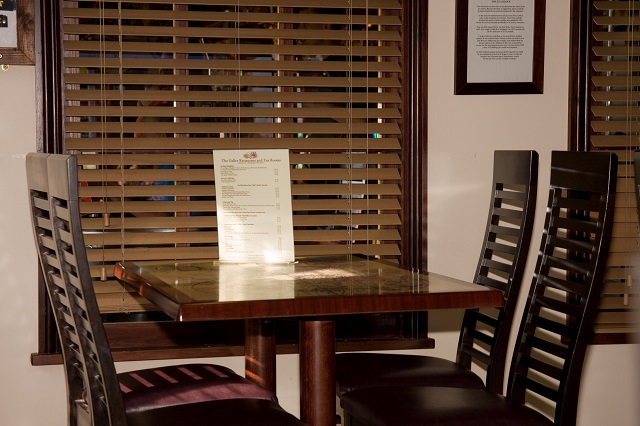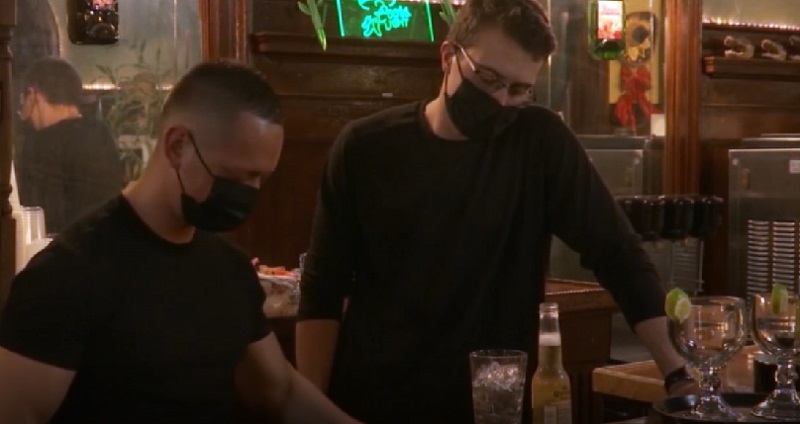PORTLAND, Ore. (KOIN) — Restaurant owners and lovers hand-delivered 100 letters to Gov. Kate Brown’s residence early Wednesday morning, fully sounding the alarm for legislators to make moves before the Portland and Oregon food scene evaporates.
Hours later, Brown announced under a new order that restaurants statewide can reopen for limited outdoor dining next week. But the concession doesn’t help well-known Portland restaurants like Le Pigeon and Canard, who don’t have a patio to host diners outdoors.
Both had to close again during the current freeze, as they can’t effectively run to-go orders with their fine dining business model. Meanwhile, fast food chains like Chipotle and Chick-Fil-A are booming.
“Restaurants have been here as a cornerstone of the community for a very long time and we have been the place for people to ask for help, whether we are sponsoring a team or donating food,” said Katy Connors with the Independent Restaurants of Oregon Alliance. “At this point we are asking for our elected officials to do the same, to help us at this time of need.”
Members of the Independent Restaurant Alliance of Oregon said they understand and agree with the safety measures the state is enforcing.

“One of the safest things is for everyone to stay home,” said Micah Anderson, the manager at the Rum Club. “However as people who work in an industry really affected by this, all we need is some help. We can’t shut our doors and expect to be here in 6 -7 months with nothing. So we’re asking for the state and local officials to help us out.”
An informal survey of independently owned restaurants indicates that the loss of indoor dining results in a revenue loss on average of 81.75% thus forcing closures and mass layoffs.
When asked how much money revenue they’ve lost 2020 compared to 2019 cafes, delis and other businesses that could lean into to-go operations have lost approximately $600,000 on average in the first 7 months of the shut down. Dine in restaurants and bars, are averaging $1.5M per unit in losses.
Even popular restaurants with robust to-go programs like Hat Yai are seeing profits plummet amid this latest mandated dining room closure.
“Ever since the freeze took place we’ve seen our sales decline 25 to 35% on a daily basis,” Katy Connors, Hat Yai’s director of operations said. “Just seeing those numbers come in, I can only imagine the decrease that’s been happening in restaurants and bars that don’t have the tools that we have the popularity that we have in our community.”
Each time a restaurant closes they lose perishable inventory and have to maintain payroll to properly shut down the business. In March, closures resulted in payroll expenses and inventory loss on average of $40,000 per location.
“After eight months of operating with reduced capacity restaurants have no cash reserves and are saddled with crippling debt. Those who were able to secure Payroll Protection Program funds, have exhausted them,” wrote Erika Polmar, COO of the Independent Restaurant Coalition. “And if they had a savings account they’ve surely exhausted that too.”
In order to survive the pandemic Oregon restaurant say they need The Restaurants Act, introduced by Rep. Earl Blumenauer, to pass through Congress. It provides a $120 billion grant fund for restaurants and bars.
Locally, they said they can’t wait any longer for federal assistance.
Members of the community are asking Governor Brown to declare a catastrophic disaster and a remote special session before the end of the year.

The three main asks include passing legislation allowing cocktails-to-go, extending the commercial eviction moratorium and additional financial aid.
“Without a commercial eviction moratorium restaurant and bars not only stand to lose their leases, they are in danger of losing their homes,” Polmar wrote. “Personal guarantees in leases make this possible.”
Cocktails-to-go was conceived as a lifeline for bars and restaurants in April. Although it won’t save the industry it provides a lifeline. In many cases it would allow a business owner to bring a few people back to work. The proposal wouldn’t cost the state a penny.
“Having that as a supplemental revenue stream I know would help my little bar out tremendously,” Anderson said. “That’s just one of the many things we’re fighting for.”
Governor Brown’s office responded to an inquiry about the idea.
“Our office has worked with stakeholders and the OLCC on options for allowing “to-go cocktails,” and we have determined that this could only happen through a statutory change, which requires legislative action.
Regarding a special session, Oregonians are making tremendous sacrifices to prevent the spread of COVID-19. They are counting on lawmakers from both sides of the aisle to work together in the best interests of the state. The Governor remains open to holding another special session if legislators can agree to a succinct list of policies that addresses Oregonians’ most pressing needs, including the impending expiration of the eviction moratorium, while also preserving state resources to maintain vital public services and address the devastation caused by our catastrophic wildfire season.”
Testimony from restaurant owners